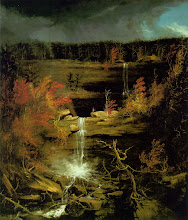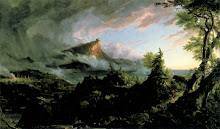I've skimmed Burke's work, reading the 1931 work first. Here Burke gives writers a "counter-statement" to what he calls the common "view of the day." He then describes qualities writers use and should consider, from specific narrative elements, to universal themes/ideas, to the role of artists in the world. His many specific examples clarify his ideas.
1931 "view of the day" must mean he runs counter to the avant-garde and Marxism, I imagine. His work does seem more traditional at first, along the lines of the Greco-Roman choices offered artists but he offers more variety and ends with the potential for a work to surpass the artist.
1950 In a Rhetoric of Motives, Burke discusses Classical literary traditions. At first, I thought his point would be to uphold these traditions against the "view of the day" mentioned before; however, he points out that these traditions are opinions, not facts to be used in all cases across all eras. He disputes the notion of "reason" in regard to choices of rhetoric. Reason, he feels, suggests a "truth," rather than an opinion. I am puzzled by his use of "we" to describe his own personal experience; however, I find his examples illustrate his points well. He does not negate the importance of Classical tradition, but does show how modern authors mustn't be hemmed exclusively by traditional opinions. I look forward to class, so I can better understand the details as I've had to skim both excerpts much too quickly!
Subscribe to:
Post Comments (Atom)
.jpg)
.jpg)
.jpg)
No comments:
Post a Comment